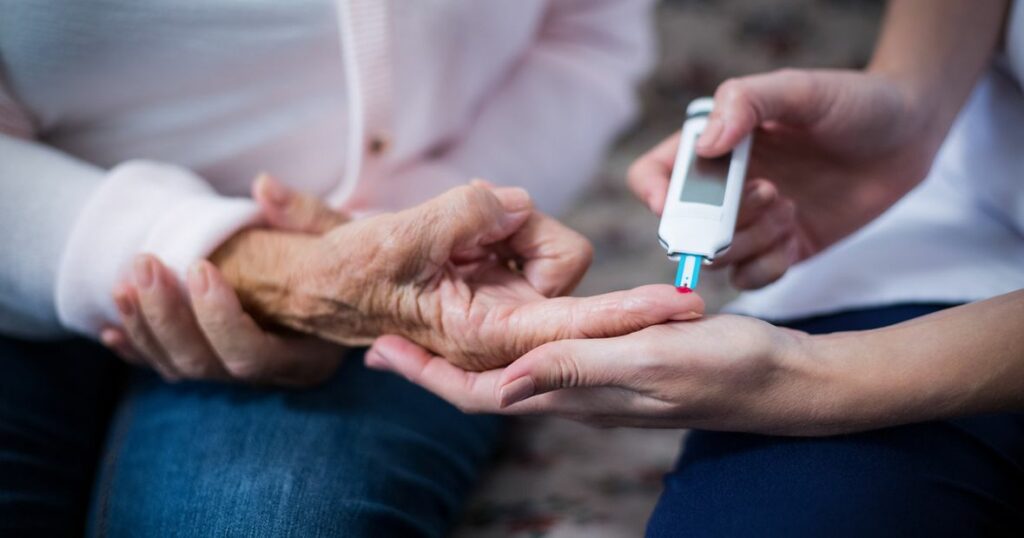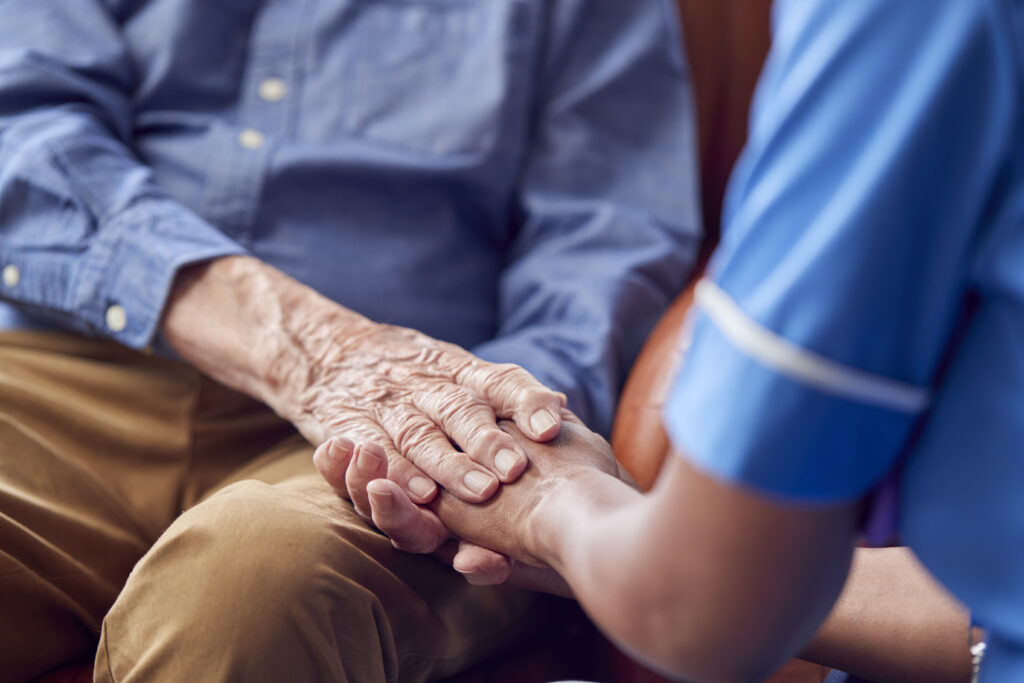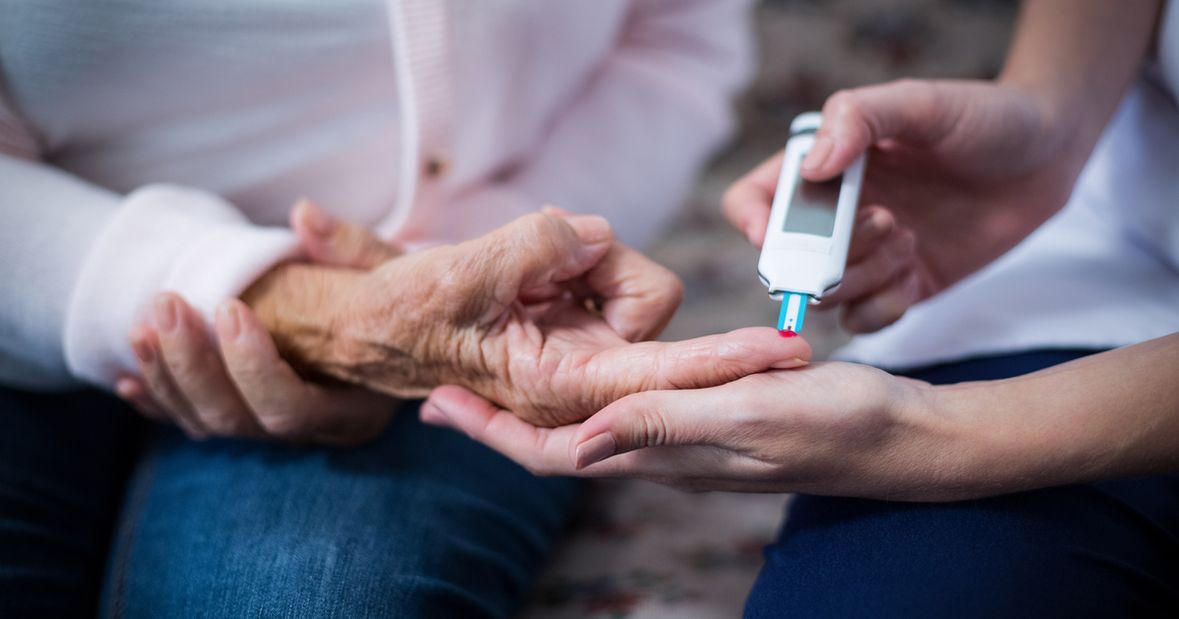If you are carer, the chances that at some point you’ll be looking after someone who is living with diabetes is high. In fact, the condition affects 1 in 4 over 65’s, and so making lifestyle choices that keep blood sugar levels healthy is essential.
Diabetes is often referred to as a ‘silent disease’ as, worryingly, symptoms often don’t present until something goes very wrong, and long-term complications from uncontrolled diabetes can lead to heart attacks and strokes, kidney failure, blindness and more.

If you are caring for someone who is living with diabetes – maybe a loved-one – then it’s likely that you are helping them to manage their condition, which can be a daunting prospect even for a professional.
Care In Kent have compiled this guide to managing the disease and helping you to support those in your care to ensure they have the best quality of life possible.
Learning Is Key
Caring for anyone always begins with education, and when it comes to a condition like diabetes, learning as much about the disease as possible will ensure that you are armed with all the tools necessary to face the challenges head-on!
This is where the internet is worth its weight in gold; you’ll find no shortage of official medical sites that have a lot of helpful information. You might also be fortunate enough that your local health clinic holds diabetes education classes.
If not, the GP is always a good place to start; why not visit them with the person you are caring for? They’ll be able to answer any questions you have about caring for someone with diabetes and be able to give you advice and additional information.
Make Lifestyle Changes
You’re never too old to overhaul your lifestyle and make positive changes to benefit your health. Taking regular exercise and eating a healthier diet will lead the way to improving an older person’s health.
Physical activity is essential in keeping blood sugar levels low and contributing to a healthy weight loss.
But remember….
Don’t Overdo It!
Everything in moderation, as they say, and exercise – particular for those who have diabetes – definitely falls into that category! It’s important to be sensible when it comes to encouraging an older person to increase their activity levels. For example:
Schedule exercise an hour or so after a meal when blood sugar levels are higher
If an older person in your care is exercising away from home make sure you have emergency items such as water, glucose tablets and high-carb snacks to hand.

Keeping Stress Levels Low
When we experience stress the ‘fight or flight’ response is triggered, and our body reacts accordingly. However, this response doesn’t work properly in those who have diabetes and stress can spike blood sugar levels instead.
Encourage activities such as yoga or meditation as positive self-care techniques, or maybe even a massage or taking up a new hobby…anything that will promote relaxation and keep stress at bay.
Ensure They Have Medical ID
You might not be a 24-hour carer for someone with diabetes. Maybe you pop in once a day, or just when needed. Perhaps the person in question is your mother or father and they don’t like to bother you every five minutes and so try to manage by themselves. Whatever the circumstances, it could be that at some point you won’t be around when there is a diabetes-related emergency – fainting due to low blood sugar, a severe infection from a slow healing wound, or going into shock for example….
It’s essential that someone living with the condition wears a medical alert bracelet or bracelet. Perhaps they carry an iphone with them? If so, enter their Medical ID information into the emergency info section. That way, if the worst were to happen when you aren’t there, all their relevant information is easily accessible to the paramedics.
Make Sure All Meds Are Coordinated
If the person in your care is taking medications for their diabetes it’s important that it’s managed properly so that the correct dosage is always taken and on time, and that they don’t run out.
As I mentioned earlier, it’s a good idea to accompany them to GP appointments with them – especially if they’re sometimes forgetful or get confused. You can also make sure that they’re not being prescribed medicines that might interfere with their diabetes medications.
Ask For Support If You Need It
At Care In Kent we are huge advocates of supporting one another when it comes to caring for the most senior members of our society. Never be shy about reaching out for support and advice – you certainly won’t be the only one who is caring for someone who is elderly and has diabetes.

You’ll find plenty of support groups online and on social media, or speak to your GP or local authority about where you can find support groups in your area.
If you want more information on caring for an elderly loved-one – whether they have diabetes or not – then get in touch with us at Care In Kent and find out how we might be able to help.


